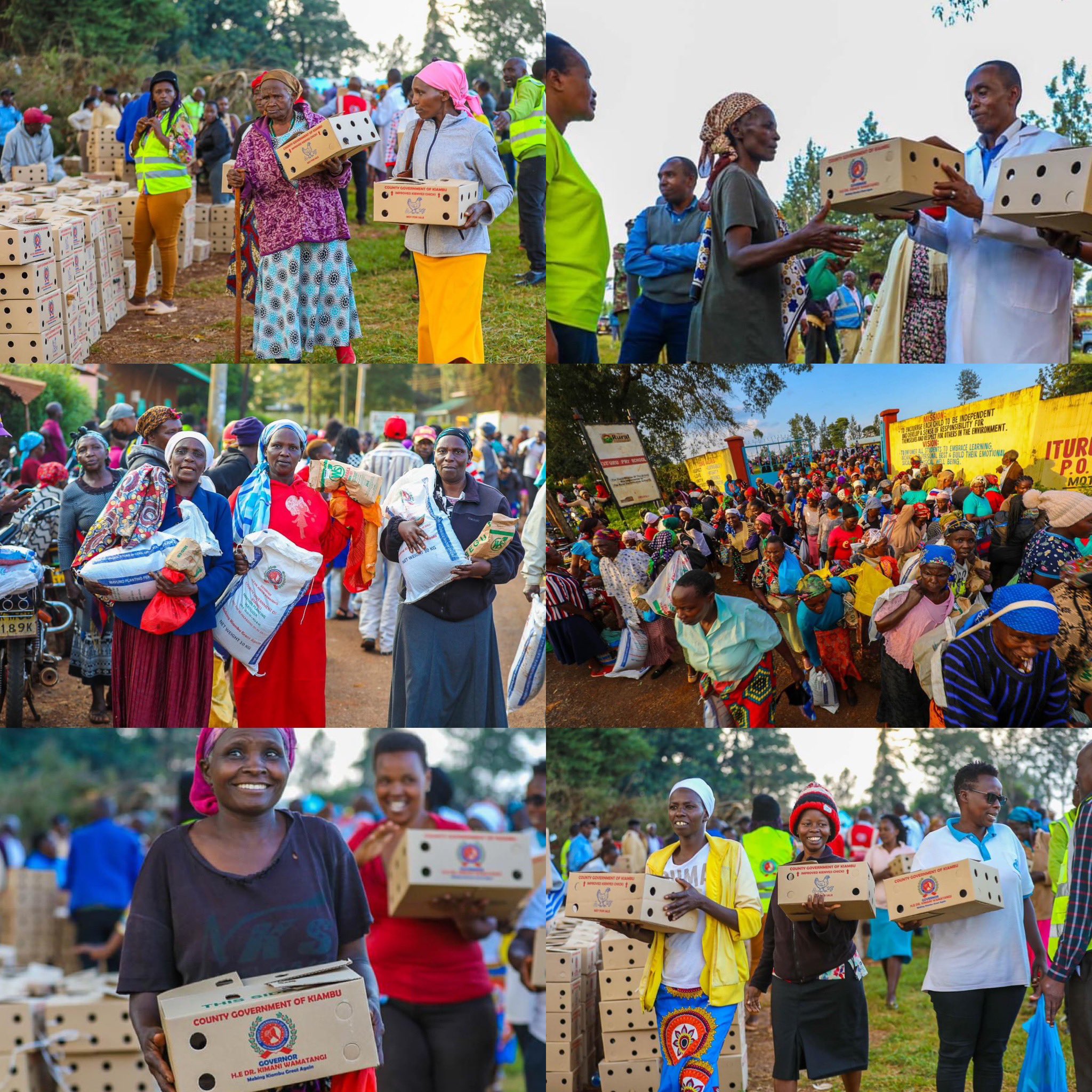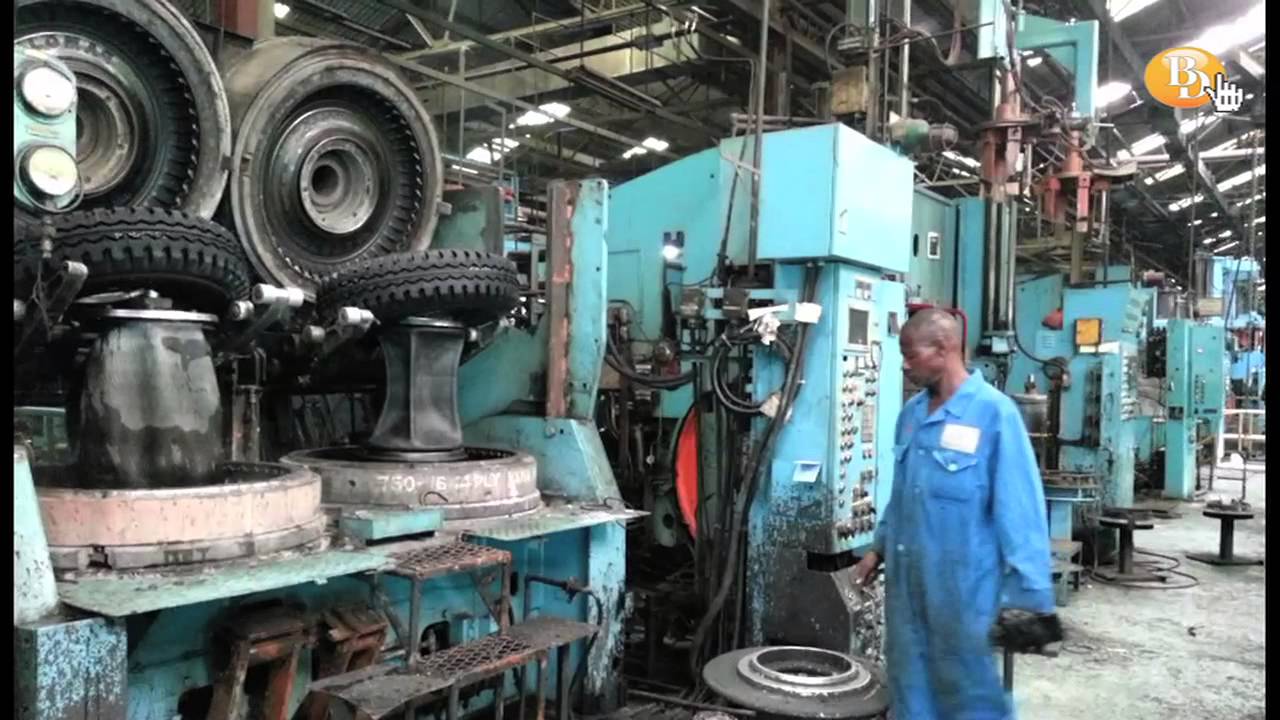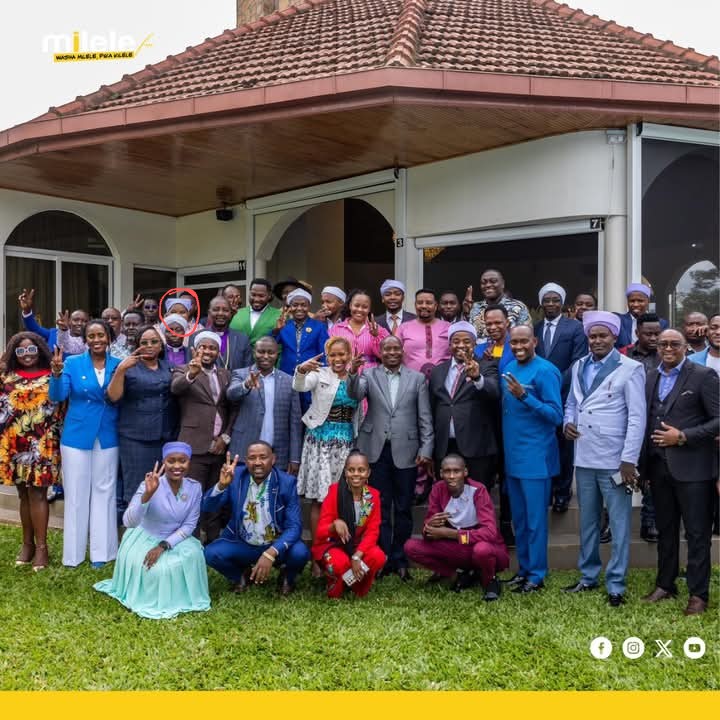Kenya’s industrial sector, once a cornerstone of economic progress, has been systematically dismantled by legislation that prioritizes importers over local producers, leading to the collapse of industrial towns like Thika, once dubbed the “Birmingham of Kenya.” This article examines how parliamentary complicity, driven by corruption, has facilitated the decline of key industries such as textiles, tire manufacturing, and vehicle assembly. It also highlights how voters in the Mount Kenya region, swayed by distractions like gospel musicians, anti-intellectual media, and tribal affiliations, bear ultimate responsibility for electing leaders who perpetuate this cycle of economic sabotage.

ANTI-INTELLECTUALISM: Kiambu residents were industrialized from the formal economy and now they depend on handouts from corrupt politicians like Kimani Wamatangi “donating” day-old chics
Drawing on insights from Francis Gaitho and broader online sources, the article explores how these factors have marginalized knowledgeable voices and entrenched a culture of mediocrity in Kenyan politics.
Legislative Assault on Kenyan Industries
Kenya’s industrial decline is rooted in a series of parliamentary laws that liberalized imports, undermining local production. These policies, often presented as necessary for global trade compliance, have decimated industries that once powered economic growth in towns like Thika.
Textile Industry: Crushed by Second-Hand Imports
In the 1990s, Kenya’s textile industry, including Thika Cloth Mills, Kenya Taitex Mills, Rivatex and United Textile Industries, employed thousands and supported vibrant local economies. However, legislation liberalizing the importation of second-hand clothes, known as mitumba, allowed cheap imports to flood the market. These policies, often embedded in budget-related laws, made it impossible for local manufacturers to compete. Textile Mills collapsed, resulting in significant job losses and the erosion of a sector critical to Kenya’s economic self-sufficiency. Today, Kenya exports raw cotton while importing finished clothing, much of it produced in Kenyan Export Processing Zones (EPZs) but branded abroad and sold at inflated prices.

Thika Town is a graveyard of collapsed factories, rotting under the weight of bad governance and poor electoral choices
Tire Manufacturing: Undermined by Used Imports
The tire manufacturing industry faced a similar fate. Companies like Firestone, once major employers, were crippled by laws permitting the importation of second-hand tires whilst making domestic production expensive. These policies flooded the market with cheap alternatives, rendering local production uncompetitive. By the early 2000s, the Sameer Group’s tire manufacturing operations shut down, leaving Kenya reliant on imported tires and eliminating jobs and innovation in a sector with significant potential for local supply chains. A home-made brand called Yana Tires undermined by cannibalistic interests and retarded politicians.
Vehicle Assembly: Devastated by Second-Hand Imports
Kenya Vehicle Manufacturers (KVM), which employed over 1,000 people in Thika during the 1990s, was another casualty of import-friendly legislation. Laws allowing the importation of second-hand vehicles whilst making new cars expensive and unaffordable, primarily from Japan, flooded the market with cheaper alternatives, lacking the economic multiplier effect of local assembly. By the late 1990s, KVM’s operations were severely hampered, leaving industrial towns to grapple with economic devastation.

Sameer Industries the makers of Yana Tires and Firestone collapsed thanks to Members of Parliament being bribed to undermine local industry by importers
Brewing Industry: Sabotaged by Corporate Rivals
Castle Brewing, a significant foreign investor in Thika, contributed to both beverage production and infrastructure development, including a sewage system. However, competitors like East African Breweries Limited (EABL) lobbied for laws restricting the importation of grain and barley, essential raw materials for Castle’s operations. When these materials became unavailable locally due to EABL’s strategic acquisitions, Castle could no longer sustain production, leading to its closure and the loss of another 1,000 jobs.
These legislative decisions, often passed with little debate or public scrutiny, reflect a broader pattern of prioritizing short-term gains for importers and foreign interests over long-term economic development of Kenya’s citizenry. The closure of these industries has left industrial towns like Thika economically hollowed out, with rising unemployment, crumbling infrastructure, and a reliance on informal sectors like water vending or private sewer exhausted due to failing public services.
Parliamentary Complicity and Corruption
Kenya’s Parliament lies at the heart of this industrial collapse, passing laws that undermine local industries while enriching a select few. Reports of MPs receiving bribes – up to KSh 10,000 in parliamentary washrooms – to support government-sponsored bills highlight the extent of corruption. The Value Added Tax (VAT) Bill of August 2013, for instance, increased fuel and electricity prices, further burdening local companies and discouraging investment. Such legislation reflects a Parliament beholden to vested interests, including powerful importers and corporate lobbies, rather than the public good.
The Independent Electoral and Boundaries Commission (IEBC) exacerbates this issue by rigging electoral processes to favor party-aligned candidates which ensures that Parliament remains dominated by MPs loyal to corrupt political machines. This system marginalizes independent voices who might challenge the status quo, perpetuating a cycle of legislation that benefits importers and foreign interests.
Voter Responsibility and Cultural Distractions
Voters for instance in the Mount Kenya region, bear significant responsibility for this state of affairs due to their susceptibility to distractions and anti-intellectual influences. The region’s social, economic, and political agenda is often set by “comedians, semi-literate pastors, gospel musicians, and other secular musicians,” sidelining knowledgeable individuals who refuse to pander to tribal or populist sentiments. This has led to the election of leaders who prioritize personal gain over policy substance, perpetuating the industrial decline.
The Role of Gospel Musicians and Anti-Intellectual Media

The fact that politicians associate with semi-literate musicians and comedians more than investors and business owners shows how low the country has sunk by aligning policy to anti-intellectualism
Gospel musicians like Ben Githae, Karangu Muraya, Sarah Kimunyi, and Samidoh, along with vernacular media outlets like Kameme FM and Inooro TV, play a significant role in shaping public opinion in the Mount Kenya region. These figures and platforms often focus on entertainment, gossip, and tribal loyalty rather than substantive policy discussions. For instance, Karangu Muraya, a prominent gospel musician, has been involved in high-profile social events, such as Sarah Kimunyi’s 50th birthday celebration, attended by other musicians like Ben Githae and Muigai wa Njoroge, which was broadcast live to amplify their influence. Similarly, Samidoh, a Kikuyu Mugithi artist, frequently dominates headlines with personal controversies rather than policy insights, further distracting voters from critical issues.
Vernacular media outlets like Kameme FM and Inooro TV, while culturally significant, often prioritize entertainment over intellectual discourse. A Reuters Institute report notes that these stations have gained traction in digital spaces by addressing culturally specific issues, but their focus on sensationalism and entertainment can overshadow serious policy debates. This anti-intellectual bent reinforces a culture where voters prioritize charisma and tribal affiliations over competence, electing leaders who fail to address the industrial collapse.
Marginalization of Knowledgeable Voices
Individuals like Francis Gaitho, who advocate for policy-driven governance and challenge corrupt systems, are often shunned in the Mount Kenya region for their refusal to stroke the egos of religious leaders, corrupt journalists, and groups like Ngogoyo and the Kikuyu Council of Elders. These groups wield significant influence, promoting candidates who align with parochial interests rather than those who prioritize economic reform. The Kikuyu Council of Elders, for instance, often endorsed candidates like Uhuru Kenyatta and his bandwagon of corrupt nominees based on ethnic loyalty, reinforcing a political structure that marginalizes independent thinkers. This dynamic ensures that Parliament remains filled with MPs who prioritize party loyalty and personal enrichment over the public good.

Vernacular media have played a major role in dumbing down Mount Kenya audiences. The same is replicated by other vernacular media conspicuously owned by the same individuals reeking of coordinated and deliberate intent
Tribalism and Political Manipulation
The Mount Kenya region, dominated by the Kikuyu ethnic group, has historically played a pivotal role in Kenyan politics, producing three of the country’s five presidents. However, this dominance has been exploited by politicians who manipulate tribal loyalties to maintain power. The 2022 elections saw William Ruto secure a significant portion of the Kikuyu vote by leveraging his fraudulent “hustler narrative”. This tribal politicking distracts voters from the economic consequences of legislative decisions, as evidenced by the continued support for parties like the United Democratic Alliance (UDA), which have failed to address the industrial decline.
Broader Implications for Kenya’s Economy and Democracy
The deliberate destruction of Kenya’s industries has profound economic consequences. The country’s reliance on imports has stifled innovation, eliminated jobs, and increased public debt and inflation. The tax regime, shaped by parliamentary legislation, makes locally produced goods uncompetitive, as seen in the case of EPZ-manufactured clothing sold abroad at lower prices. This dependency has fueled economic instability, with soaring fuel prices and an unstable exchange rate exacerbating the crisis.
Democratically, the IEBC’s manipulation of electoral processes and the dominance of corrupt MPs undermine public trust. The marginalization of knowledgeable and intellectual individuals like Francis Gaitho from public discourse simply for their refusal to bribe journalists or stroke the egos of corrupt editors and the prioritization of party loyalty ensure that Parliament remains a tool for vested interests. The 2022 elections, while relatively peaceful, saw a significant drop in voter turnout to 66%, reflecting growing cynicism among Kenyans. This disillusionment is compounded by the failure of elected leaders to address pressing issues like unemployment and industrial collapse.

Figures like Francis Gaitho are shunned from public discourse in favor of street urchins and gospel musicians
A Call for Voter Accountability
Kenyan voters must reject distractions and demand accountability from their leaders. The media, particularly vernacular stations, should facilitate debates where candidates articulate their agendas, enabling informed voting. The obsession with gospel musicians and anti-intellectual broadcasts must give way to policy-driven discussions. The current crop of low-IQ vernacular editorial guidelines which encourages blind loyalty to a single party, perpetuates corruption and ineffective governance and should be abandoned.
Occupying Statehouse and disbanding IEBC, seen as complicit in electoral manipulation, is a proposed step toward restoring democratic integrity. Voters must also move beyond tribalism, focusing on candidates’ manifestos rather than populist rhetoric. By electing MPs, governors, and Members of County Assemblies (MCAs) who prioritize local industries and economic development, Kenyans can begin to reverse the industrial decline.
Conclusion

Vernacular media has played the retrogressive role of foisting charlatans and suppressing intellect at the expense of Mount Kenya’s development
The collapse of Kenya’s industrial towns like Thika is a direct result of legislation that favored importers over local producers, facilitated by a corrupt Parliament and an electoral system that stifles independent voices. Voters in the Mount Kenya region, swayed by gospel musicians, anti-intellectual media, and tribal loyalties, have inadvertently perpetuated this cycle by electing leaders who prioritize personal gain over economic reform. The marginalization of knowledgeable individuals like Francis Gaitho from public discourse, who challenge this status quo, underscores the need for a cultural shift toward policy-driven governance.
To reclaim Kenya’s industrial potential, voters must reject distractions and hold leaders accountable. By prioritizing candidates who champion local industries and challenge the import-driven tax regime, Kenyans can rebuild their industrial towns and restore economic opportunity. The path forward lies in informed voting, robust public debates, and a commitment to dismantling the corrupt systems that have held the country back.
